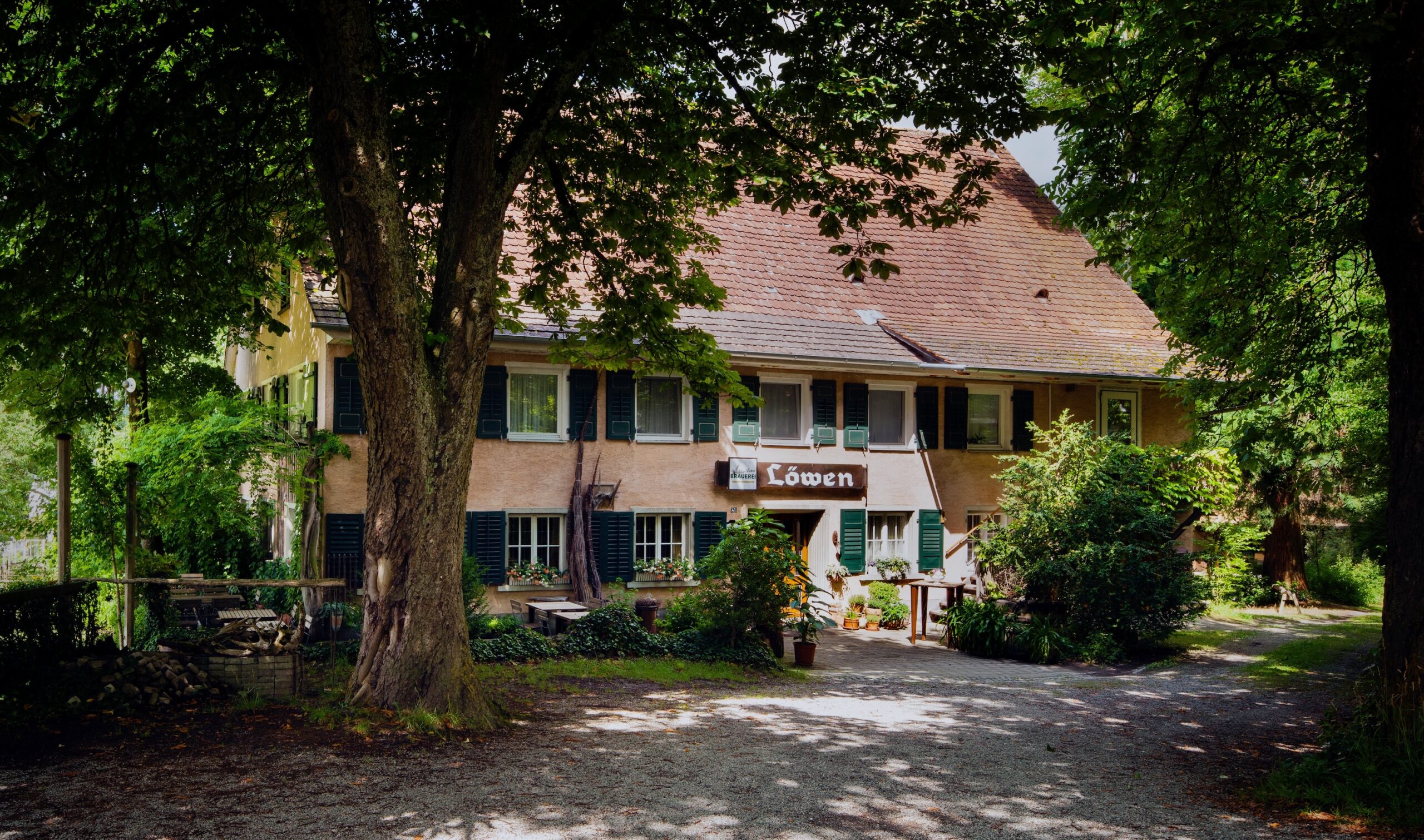NORTH STARS:
Production & Consumption
Waste Management
Certifications
“For travelers aware of climate change and the exhaustion of natural resources, Germany’s Bodensee region offers a chance to delve into an alternative way of life, where regional products, organic and biodynamic practices and self-sufficient simplicity reign.”
At the intersection of Germany, Switzerland and Austria, Bodensee (Lake Constance) stretches across the horizon like a contained sea. With the Alps always looming in the distance, the German shore is speckled with medieval towns filled with half-timbered houses, and the peaks of historic churches marking main squares. In the summer, thousands of German tourists flock to the beaches, crowding waterfront hotels and vacation homes.
Further into the backcountry, things are exceptionally serene amongst the farms and small villages surrounded by rolling hills covered in forests, fruit orchards and vineyards. It is no wonder that farm-to-table cuisine, organic and biodynamic farming are in the forefront here, fostering a lifestyle that benefits from the harmony between human beings and the natural environment. For travelers aware of climate change and the exhaustion of natural resources, Germany’s Bodensee region offers a chance to delve into an alternative way of life, where regional products, organic and biodynamic practices and self-sufficient simplicity reign.
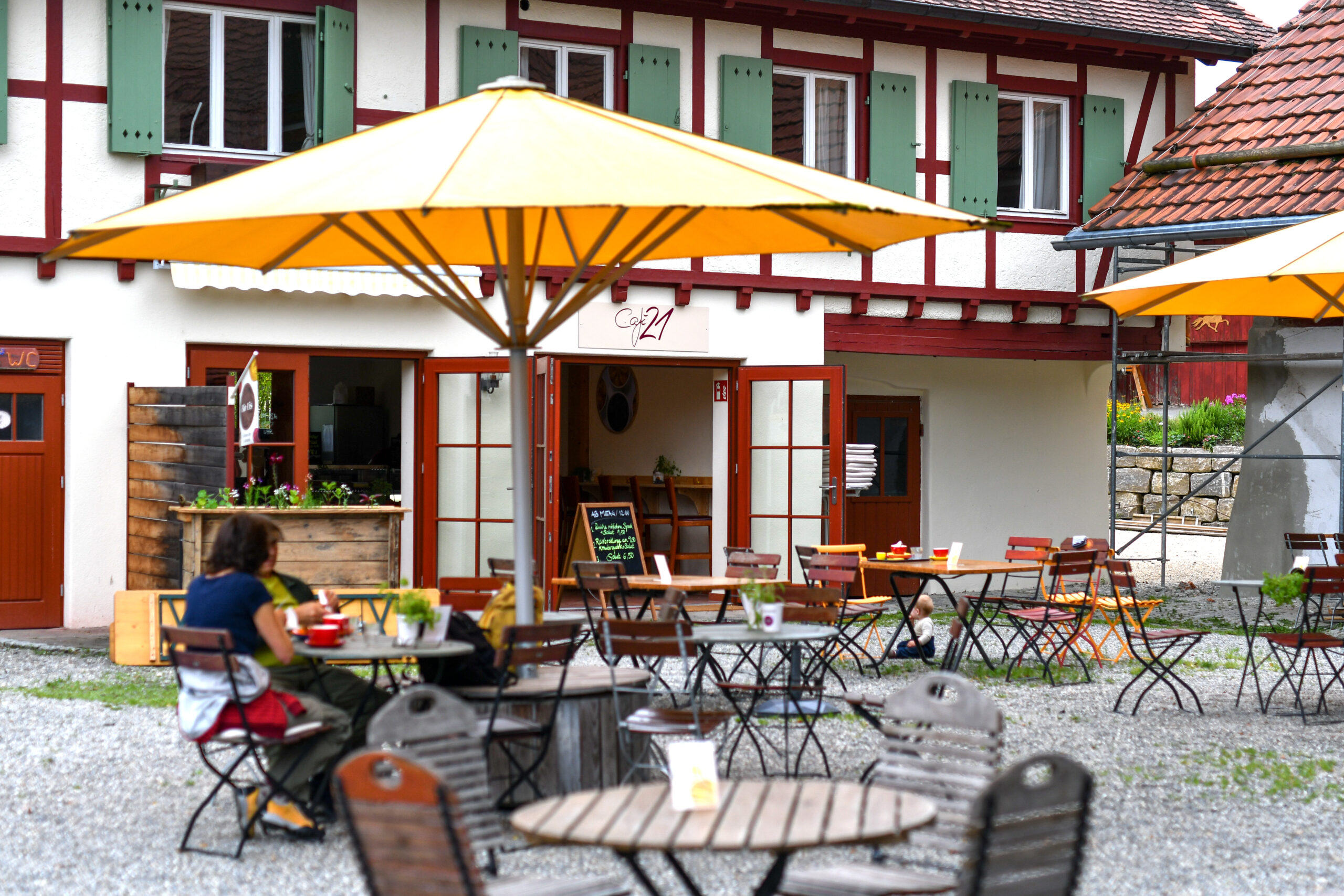
Hofgut Rengoldshausen. Courtesy of Hofgut Rengoldshausen
Where to Shop
Dating back to 1924, biodynamic (Demeter) farming is a holistic, ecological, and ethical approach to agriculture which views every farm and garden as a unique living organism. For biodynamic farmers and gardeners, the interaction between soil, plants, animals and humans in an environmentally-friendly and regenerative way is key, with every part nurturing the other.
One of the world’s oldest biodynamic farms, Hofgut Rengoldshausen has been active since 1932 and continues to thrive as a living and working community. One of Rengo’s special services includes the Grüne Kiste (Green Box), supplying seasonal produce on a fixed day of the week to customers in the surrounding areas. In the peaceful inner courtyard, the farm shop stocks freshly harvested produce and agricultural products from Rengo’s own cultivation. Right next door, the farm café offers simple lunches, pastries and homemade cakes from farm-fresh ingredients.
A short stroll away, the Naturata shop is one of the area’s oldest and biggest organic stores, established in 1976, with its current location open since 1992. Designed by the renowned Hungarian architect Imre Makovecz, the structure–with its steep roof, large windows and interior system of twelve-meter-high filigree wooden struts supported by solid tree trunks–is Gothic, almost sacral in its feeling. Apart from a comprehensive assortment of strictly organic and natural goods–with a special focus on biodynamic products–Naturata also has six guest rooms, a natural clothing shop for the whole family, a bookshop and a restaurant and café serving a daily menu of wholesome dishes.
The biodynamic Lehenhof farm is a village community with around 400 people living and working together. It’s part of the Camphill Movement, an international organization of residential communities and schools, which provide education, employment and daily support for adults and children with developmental disabilities and other special needs. Located in the village of Untersiggingen, the farm’s own Lehenhof Bioladen (organic market) is a sprawling space of 400 square meters filled with organic products, including their own baked goods, cheese and dairy products and seasonal vegetables.
Available in both of these organic markets are the products of Sonett, an international company based in the Bodensee region’s Deggenhausertal municipality. Founded in 1977, Sonett creates environmentally-friendly washing and cleaning products. By abstaining from petrochemical raw materials, enzymes and genetic engineering, Sonett’s products contain biodegradable raw materials such as essential oils derived from organic plants and purely plant-derived soaps. Winner of the German Sustainability Prize 2024, the company’s laundry, cleaning, dishwashing and body care products, packaged in their signature bright colors, work in harmony with nature.
Located in the undulating green fields outside the village of Daisendorf, Andreashof is a little paradise of blooming flower gardens. The biodynamic farm specializes in the production of Licht Yam (light root) or Chinese yam (Dioscorea batatas or Chinese Shan Yao), which, according to traditional Chinese medicine, is believed to strengthen the Qi (vital force) with a harmonizing effect on body and mind. In the Andreashof shop, natural cosmetics, teas and herbs, all with powerful Lichtyam extracts, are for sale. Also housing a café, locals come here on the weekends for the classic Kaffee und Kuchen (coffee and cake) enhanced with light root extracts.
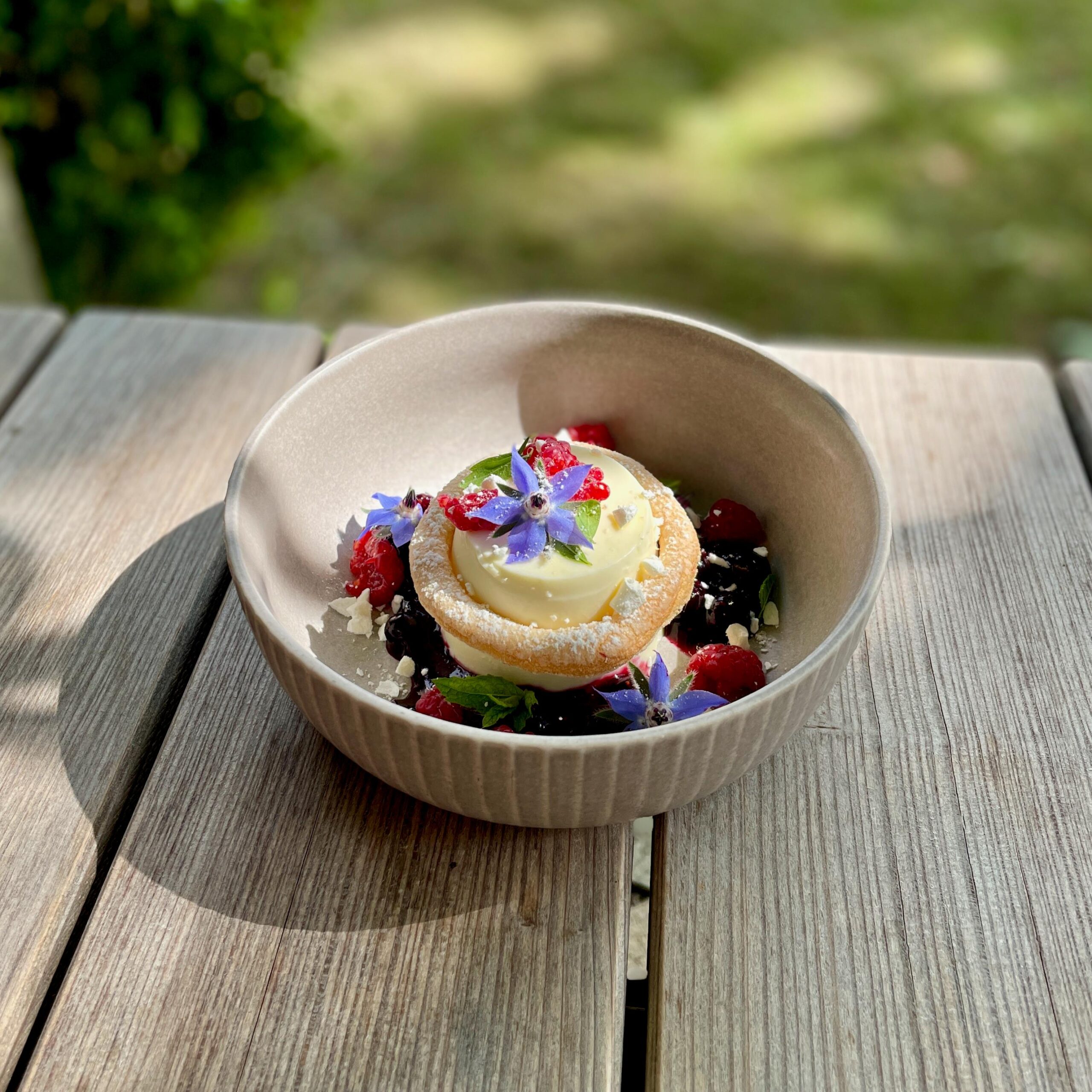
Lowen Altheim. Courtesy of Lowen Altheim.
Where to Eat, Drink, and Stay
Located in the small hinterland village of Altheim, Löwen Altheim is one of the region’s best-kept secrets. A down-to-earth family endeavor currently in its fourth generation, the kitchen turns out gourmet dishes based on natural, regional and seasonal ingredients. After having trained in kitchens in Stuttgart, Zermatt, and Amsterdam, Chef Roman Pfaff returned to take over the family business in 2017, adding his own contemporary touches without losing Löwen’s heritage roots.
Tasting menus pay homage to classic dishes–such as the perfectly tender lamb filet with port wine sauce and potato gratin. However, you’ll also find creative additions with international influences like an Asian beef broth with soba noodles or a selection of Mediterranean mezze. Wherever possible, ingredients are sourced from fair, organic and local producers, the names of which are always printed in the menu. The wine menu focuses on regional producers, such as the young winemakers of Lanz, in the nearby Bavarian town of Nonnenhorn, famous for its vineyards and annual wine festivals. Apart from its beautiful dishes served in spaces that feel more like the family’s own cozy dining room, the restaurant also has a modest cabin with two holiday apartments renovated by Roman’s father Franz, a talented carpenter and artist.
The latest addition to Löwen’s dessert menu is the ice cream varieties of Gelao, an artisanal local manufacturer and an essential alternative to industrial ice cream. Founded by Laura Albrecht in 2021, flavors derive strictly from seasonal and regional ingredients and high-quality haymilk from Lichthof (a Camphill and Demeter farming community in Heiligenholz). Stored in classic stainless steel dipping cabinets, sorbets from fresh local strawberries, quinces, pears, figs or currants pair beautifully with the house favorite Stracciatella (when available, as flavors change daily). The affogato includes espresso made from the high-quality Philia Coffee beans, a local coffee roastery.
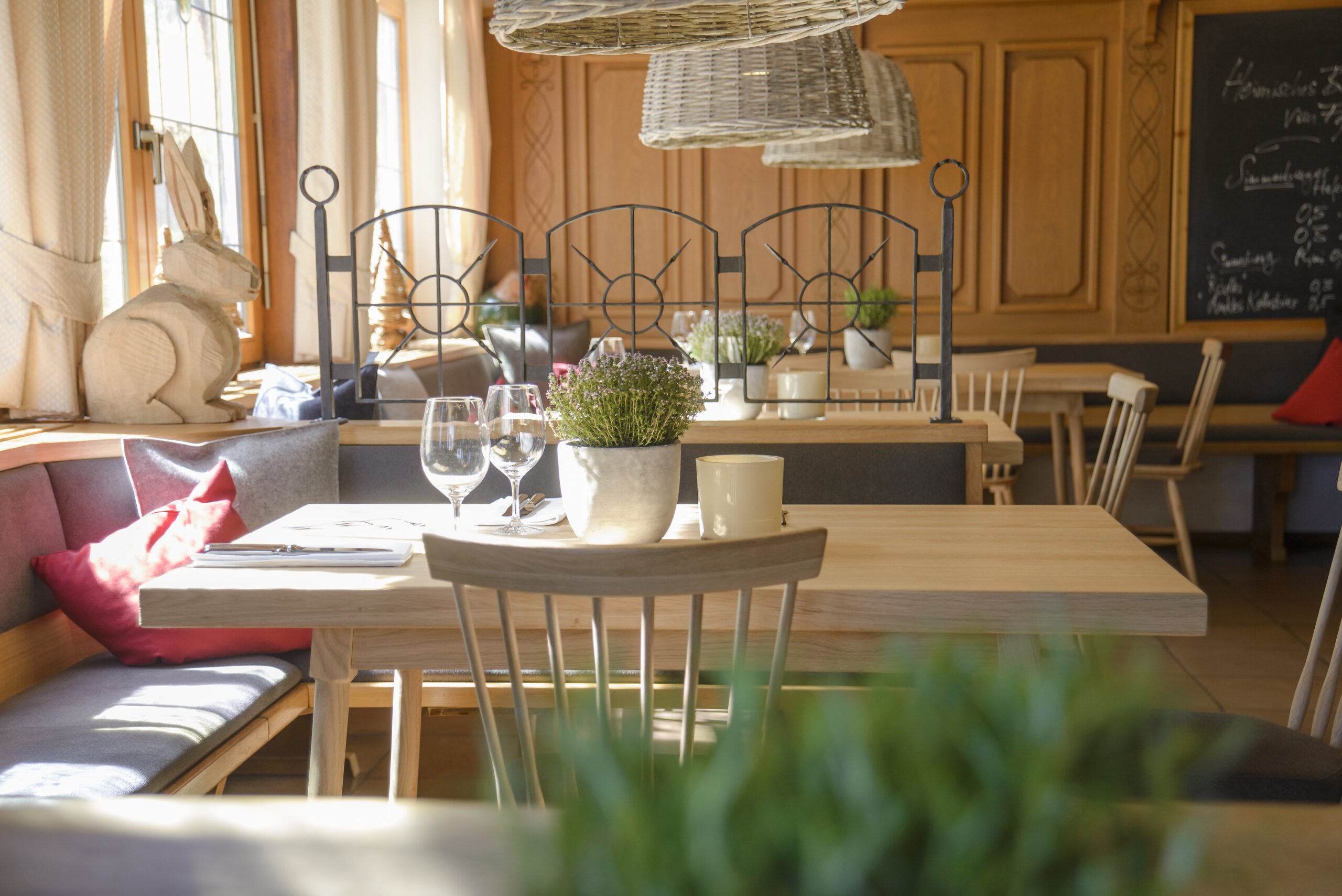
Another successful family endeavor, the Biohotel Mohren in Limpach is thoroughly organic, including membership in Bio Hotels, an initiative promoting hoteliers abiding to pioneering standards of sustainability in Germany, Austria, Italy, Slovenia and Greece. It’s no wonder, since the Weizenegger family has been active in agriculture for generations, having converted their estate to organic farming in the 1980s.
Abundant resources drive Mohren’s focus on transparent, sustainable, and organic practices, including the family’s own herd of Black Angus cattle, fresh produce harvested on site, and a tight network of local organic producers. Led by the hotelier, farmer and organic chef Jürgen Weizenegger, regional and seasonal menus in the hotel’s cozy restaurant offer memorable yet simple flavors and traditional recipes with a modern twist. The hotel’s spa–with saunas, a relaxation garden with a sun terrace and its own tea bar with a fireplace–offers holistic beauty treatments with the 100% natural products of Pharmos Natur.
Close to the car ferry port, the historic town of Meersburg lures tourists with its medieval architecture, most notably the Old Castle from the 7th century overlooking the lake and Alps. It is also here that the Camphill and Demeter farming and living community Hermannsberg opened a modern café. The inclusive, organic and regional Hermann’s Place serves espresso varieties and homemade cakes and sandwiches made from ingredients sourced from Hermannsberg’s own production or other local organic farms. The café also sells the farm’s beautiful handmade beeswax candles, Demeter herbal teas and salts.
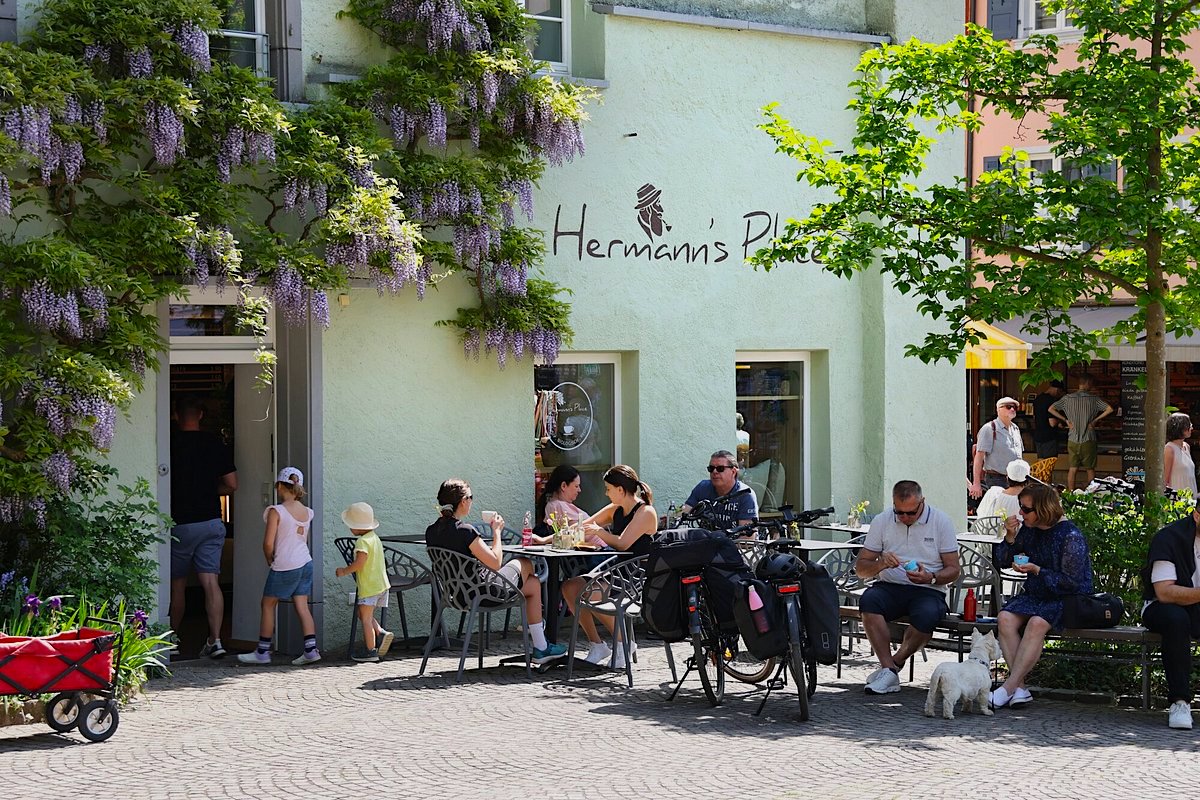
Hermann’s Place. Courtesy of Hermann’s Place.
Extra Trip to the Mountains
On Austria’s westernmost point and at the foot of the Alps, Bregenzerwald’s 23 villages exude a stunning visual uniformity through a focus on contemporary wooden architecture inspired by traditional craftsmanship. Most notable is the Biohotel Schwanen, a family business in its fifth generation with Emanuel Moosbrugger at the helm after stints in San Francisco and New York City. A true reflection of the region’s unique architecture, Schwanen’s dining rooms blend the old Bregenzerwälderstube (traditional Alpine living area), and a newer annex clad in brushed silver fir, oak and minimalist design. The food, made from strictly organic and local ingredients, equally reflects the theme of old and new with classics such as Käsknöpfle (handmade pasta with melted local cheese and caramelized onion) and contemporary fine dining tasting menus. Simple modern guest rooms harbor high quality, locally made beds from aromatic arolla pine.
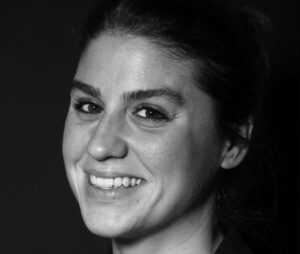
Feride Yalav-Heckeroth has been writing about contemporary culture in Turkey since 2012. Her work has been published in Kinfolk, Wallpaper*, Brownbook, The Travel Almanac, CNN Travel, Conde Nast Traveler and Travel + Leisure. She’s also the author of her own guidebook, The 500 Hidden Secrets of Istanbul. Find more of her work in her portfolio or follow Feride on IG @fyheck.


